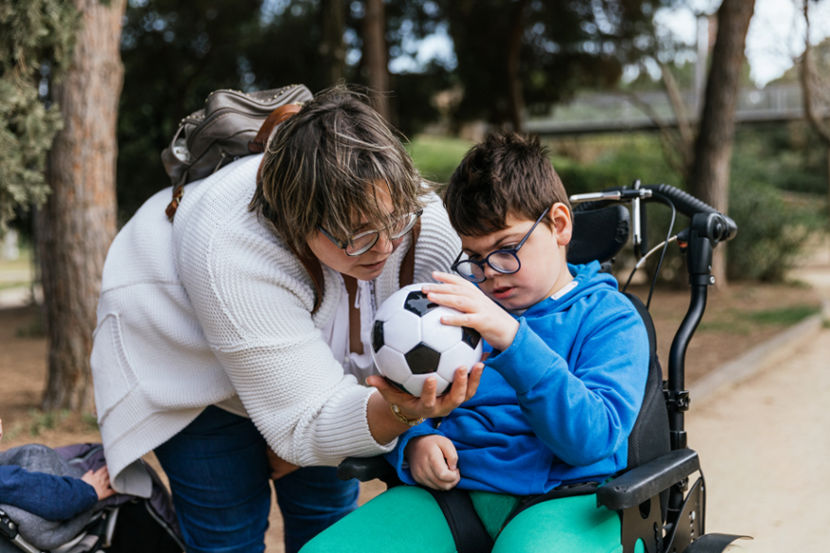If you want to make the most of your NDIS Improved Daily Living Budget and receive the best personalised support services, it’s important to plan strategically. Understanding how to use your funding effectively can help you improve your skills, independence, and overall quality of life. This guide will walk you through practical steps to ensure you are getting the most out of your NDIS plan.
Understanding the NDIS Improved Daily Living Budget
The NDIS Improved Daily Living Budget is designed to fund supports that help you build skills and independence. These supports are usually delivered by allied health professionals such as occupational therapists, speech pathologists, psychologists, and physiotherapists. The goal is to improve your ability to perform everyday activities and participate in the community.
This budget falls under the Capacity Building category, meaning it is specifically aimed at enhancing your ability to perform tasks rather than providing daily assistance. Understanding how to allocate your budget effectively will ensure you get the most benefit from your plan.
Set Clear Goals for Your Support Plan
To make the best use of your NDIS Improved Daily Living Budget, you should start by setting clear goals. Your goals will guide how your funding is used and ensure that you receive the right personalised support services to meet your needs.
Steps to Setting Effective Goals:
- Identify areas where you need support (e.g., communication, mobility, social skills, daily activities)
- Work with your NDIS planner or support coordinator to set realistic and measurable goals
- Regularly review your progress and make necessary adjustments
Having well-defined goals will help you prioritise the supports that will have the most impact on your daily life.
Choose the Right Providers for Personalised Support Services
Selecting the right providers is key to maximizing your NDIS Improved Daily Living Budget. The quality of services you receive directly affects your ability to achieve your goals.
What to Look for in a Provider:
- Experience and expertise in your specific needs
- A person-centred approach that focuses on personalised support services
- Positive reviews and testimonials from other NDIS participants
- Transparency in pricing and service agreements
It is also a good idea to compare providers and ask for recommendations from your support network before making a decision.
Prioritize Skill Development and Independence

Since the NDIS Improved Daily Living Budget is aimed at skill-building, focus on activities that help you become more independent.
Key Areas to Invest In:
- Daily Living Skills: Cooking, cleaning, personal hygiene, and household management
- Communication Skills: Speech therapy or assistive technology training
- Mobility and Physical Health: Physiotherapy or exercise programs
- Social Skills: Programs that help you engage with your community and build relationships
Investing in these areas can lead to long-term improvements, reducing your reliance on supports in the future.
Monitor and Track Your Spending
To avoid running out of funds before your plan review, keep track of your spending and ensure you are staying within your budget.
Budgeting Tips:
- Use the NDIS myplace portal to monitor your expenses
- Keep records of invoices and service agreements
- Regularly check your funding balance to ensure you have enough for the full plan period
By actively managing your funds, you can ensure that you get the most value from your NDIS Improved Daily Living Budget.
Seek Professional Guidance
Working with an NDIS plan manager or support coordinator can help you make informed decisions about your funding. These professionals can:
- Explain how your funding works
- Help you find and connect with the best personalised support services
- Assist with budgeting and financial tracking
Having expert advice can make a big difference in ensuring you are using your funds effectively.
Take Advantage of Free and Low-Cost Resources

Not all skill-building activities require extensive funding. There are free and low-cost resources available that can supplement your NDIS-funded supports.
Examples:
- Community-based workshops and programs
- Online learning resources for skill development
- Peer support groups and social clubs
Using these resources alongside your NDIS funding can help stretch your budget further.
Regularly Review and Adjust Your Plan
NDIS plans are flexible, and your needs may change over time. Regularly reviewing your plan ensures that your NDIS Improved Daily Living Budget is being used in the most effective way possible.
Steps for Reviewing Your Plan:
- Assess your progress towards your goals
- Identify any new areas where you need support
- Discuss adjustments with your support coordinator or planner
By staying proactive, you can ensure that your funding continues to meet your needs.
Conclusion
Maximizing your NDIS Improved Daily Living Budget requires careful planning, goal-setting, and smart spending decisions. By choosing the right personalised support services, tracking your expenses, and continuously reviewing your plan, you can ensure you are getting the most out of your funding. Start taking control of your NDIS budget today and work towards greater independence and a better quality of life!

